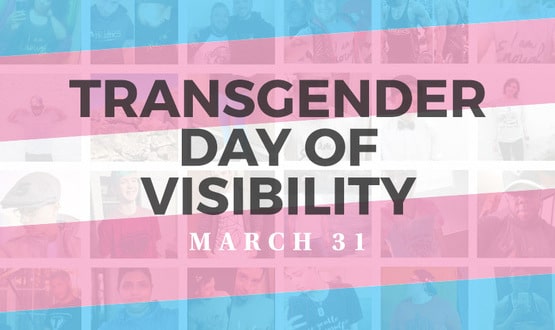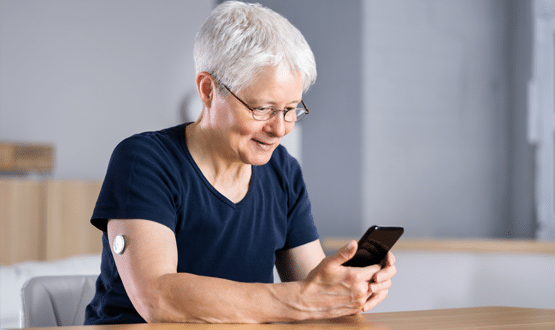Digital tech can remove healthcare barriers in the transgender community
- 31 March 2023

Today is Transgender Day of Visibility, which gives us an opportunity to reflect on some of the barriers faced by many trans people. We should also consider the role digital tools can play in addressing these challenges, says Dr Vanessa Apea, medical director at Preventx.
There are clear and continued inequalities in access, experience and physical and mental health outcomes for transgender individuals. These inequalities prevent many transgender people from living happy and fulfilled lives.
Research has shown that healthcare providers and healthcare systems can lack the understanding and knowledge necessary to support members of the transgender community.
In most cases, this is the biggest barrier to access. Regardless of who a person is, understanding who they are, their intersectional identities, and their circumstances is vital to successfully caring for and treating them.
The scale of the issue is highlighted by a 2018 survey by the UK Government’s Equalities Office. This report found that 40% of trans people have had a negative healthcare experience because of their gender identity.
A further 18% also added that they had avoided treatment for fear of a negative reaction. This reluctance to access healthcare puts transgender people at higher risk of poor health outcomes compared to other members of the population.
Poor uptake of healthcare:
A worrying example of the issues faced when trans people don’t feel comfortable accessing healthcare can be found in cancer screening, where early diagnosis is vital.
Transgender men (who were assigned female at birth) who have retained their cervixes are less likely to be up to date on their cervical cancer screening than cisgender women. This is also evident across breast cancer screening, where transgender people are around 47%-73% less likely to adhere to breast screening guidelines than cisgender people.
As an NHS consultant, my main area of focus is sexual health, where trans people are amongst those at highest risk of infection, especially with HIV, with the worldwide prevalence of HIV amongst trans women being around 18%. Despite this risk, we know trans people are less likely to attend sexual health services than cisgender people.
Within sexual health, digital technology plays a vital role in helping to improve uptake amongst communities who are less likely to access in-person health services.
Alongside being an NHS doctor, I also work as Medical Director at Preventx – a remote diagnostics provider. Since 2019, we have seen a 159% increase in transgender service users, with 10,000 individuals from the transgender community now testing through our services.
We have also seen a 70% return rate amongst transgender people. This shows that our platform is working, enabling thousands of trans people each year to test accurately, discretely, and conveniently.
The large number of people who use our services helps us to spot infection prevalence within the transgender community. For example, we can see how positivity rates for infections differ between different ethnic groups of trans people using our services, as well as those people from more deprived communities.
Using this invaluable insight, we can help our NHS and local authority service partners to plan effective public health strategies.
Why digital?
One possible reason why the trans community is engaging with online testing is that these services are by their very nature both discrete and convenient. They enable people of all backgrounds to access testing without the worry of potentially feeling uncomfortable or that they are being judged.
Digital healthcare and online testing also can remove the concern of having to fit an appointment into a busy life schedule, allowing people to access healthcare at a time that works for them.
We also know that digital services can be more adaptable than bricks-and-mortar clinics. This means services can adapt to support people in a sensitive, consistent and appropriate manner. This includes appropriate use of inclusive language, helping to improve trust and confidence.
At Preventx, we’ve seen how successful a digital approach can be in increasing access to sexual health services amongst marginalised communities.
By improving access to healthcare through digital services, alongside physical sexual health spaces, we can help to ensure a safe and reliable service for transgender, non-binary, and other LGBTQ+ groups, free from discrimination and accessibility issues.
We want to work to increase the benefits of digital services and boost the impact that a digitally empowered approach to healthcare could have.
Although there has been progress made and investment in digital infrastructure across the NHS, more is now needed. We need a sexual health strategy that is fully funded and ensures comprehensive sexual health services, where in-person clinics work in partnership with at-home online testing services to ensure accessible services for all.
We also need to improve the way that proven digital technology is rolled out more widely across the NHS. We’ve seen the impact this can have within sexual health, and we must now build on this in other areas of healthcare.
We know that innovative digital services are playing an important role in increasing access. To ensure an accessible and complete offering for all patients, we must continue developing digital services in tandem with in-person services, and with equity in mind, to ensure an accessible and complete offering for all patients.
At Preventx, we stand by the trans, non-binary, and wider LGBTQ+ community not just today, on International Transgender Day of Visibility, but every day.
We must continue to create a society that enables transgender, non-binary, and other members of the LGBTQ+ community to affirm their lived identity, and we must do more to remove healthcare barriers across the board and improve health outcomes for all.
Preventx is the UK’s largest provider of remote sexual health tests, partnering with the NHS in more than 70 local authority areas. To find out if a free test kit is available in your area, visit www.sh.uk




